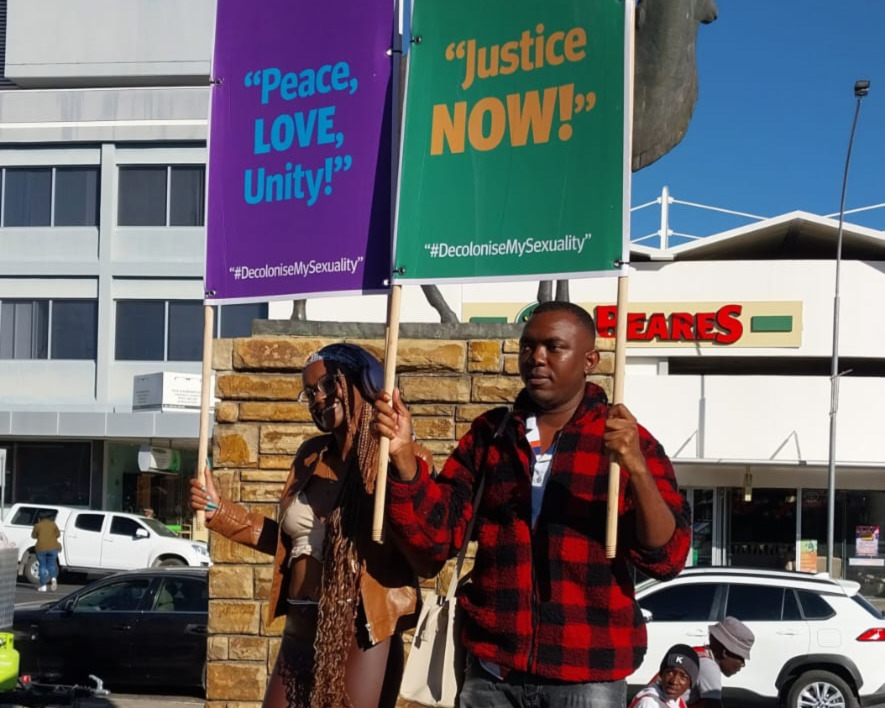The criminalisation of sexual acts between men in Namibia was declared unconstitutional and invalid by the High Court in a landmark judgement on Friday.
The common law crimes of sodomy and “unnatural sexual offences” are unconstitutional and invalid, the court declared in a joint decision by judges Nate Ndauendapo, Shafimana Ueitele and Claudia Claasen.
The court’s judgement was given on an application by a gay Namibian man, Friedel Dausab, to have the common law criminalisation of male anal sex and “unnatural sexual offences” declared unconstitutional and invalid.
The court also declared that the inclusion of the crime of sodomy in sections of the Immigration Control Act and the Defence Act is unconstitutional and invalid.
The court stated in its judgement that the common law offences of sodomy and “unnatural sexual offences” differentiate between male and female persons and between gay men and heterosexual men.
This amounts to unfair discrimination and is unconstitutional, the court found.
The judges also stated that the view that homosexuality is “an abominable vice” is based on prejudice and personal aversion.
Ordinary people would often not be able to produce reasons for such views, but would simply parrot their neighbour’s views on the matter, the judges remarked.
Dausab alleged that the criminalisation of consensual sexual acts between men violates the fundamental rights and freedoms of gay men and men who choose to have sexual relations with men, and discriminates against people on the basis of sex and sexual orientation.
He said the crimes of sodomy and “unnatural sexual offences”, which are part of Namibian law though the country’s inherited common law, are a legacy of Namibia’s colonial history and have historically been aimed at stigmatising, punishing and excluding people who do not conform to the dominant heterosexual norm.
Dausab also said although people are rarely, if ever, still charged with committing sodomy or “unnatural sexual offences”, which he said is a vague term, these common law crimes continue to stigmatise and marginalise same-sex couples “by outlawing the most private and intimate expressions of their love and identity”.
Attorney general Festus Mbandeka opposed Dausab’s application on behalf of the government.
Mbandeka has said in an affidavit filed at the High Court that the public sentiment has not reached a point where the people of Namibia, through their elected representatives, have decided that it is time to repeal laws against homosexual conduct.
Mbandeka also argued that the Constitution’s article protecting equality and freedom from discrimination does not include sexual orientation as one of the grounds on which discrimination is prohibited.
Stay informed with The Namibian – your source for credible journalism. Get in-depth reporting and opinions for
only N$85 a month. Invest in journalism, invest in democracy –
Subscribe Now!










